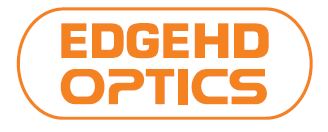Glossary | Telescopes | General | Series | CGEM II

As the successor to the popular CGEM mount, the CGEM II has a modern design and also carries larger Schmidt-Cassegrain OTAs with up to 280 mm aperture completely vibration-free: ideal for photographic use!
CGEM II innovations include a dovetail clamp compatible with both common standards, tripod legs with height markings, a hand controller with USB 2.0, periodic error correction, an autoguider connection, and the ability to track beyond the meridian.
All-Star Polar Alignment

Every equatorial mount must be polar-aligned. This means that the hour axis must be aligned parallel to the Earth's axis. This alignment is achieved by pointing at the star Polaris. However, Polaris is not always visible and finding the pole star with a polar finder is a demanding, gymnastic exercise.
Thanks to Celestron’s All-Star Polar Alignment, you just need to use any bright star to set up the telescope. It doesn't have to be Polaris, so you don't need a clear view to the north. In addition, this method also works in the Southern Hemisphere, where no star marks the celestial pole.
You then follow the detailed instructions on the hand-held controller display and after a few steps the mount is aligned, and indeed more precisely than with any other method!
EdgeHD Optics

EdgeHD optics combine the compact design of a Schmidt-Cassegrain with a noticeably improved image at its edges. This optical system produces completely undistorted, sharp images right to the edge of the large visual and photographic field of view.
Not only off-axis star coma is corrected this way, but also field curvature! No additional corrector is required as an accessory for astrophotography. This puts the higher price of the EdgeHD in perspective when compared to classic SC optics.
StarBright XLT

A very important factor in evaluating the performance of telescopes is transmission, that is the proportion of incident light that arrives at the image plane.
The main characteristics of the StarBright®-XLT coating are as follows:
- Highly reflective multi-layer mirror coating: the mirror coatings consist of precisely applied layers of aluminium, quartz, titanium dioxide and more quartz. The reflectivity is constant across the spectrum, and the three layers of coating provide excellent protection against the ageing of the mirror surface.
- Corrector plate: crystal-clear glass instead of soda lime glass is used for the corrector plate in all Celestron Schmidt-Cassegrain optics with StarBright-XLT coating. Uncoated, this glass delivers approximately 90.5% transmission. Together with the StarBright®-XLT coating, its transmission reaches 97.4%!
The entire optical system consisting the corrector plate, mirror and lenses achieve a transmission maximum of 89% at 520 nanometres (where the dark-adjusted human eye has its highest light sensitivity). The average transmission over the entire visual spectrum from 400 to 750 nanometres is 83.5%.
